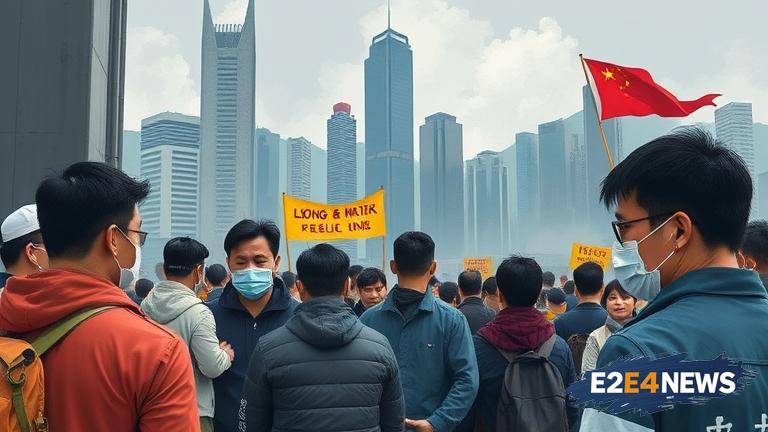The Hong Kong government has taken a significant step in its crackdown on pro-democracy activists, issuing arrest warrants for 19 individuals who have been vocal in their opposition to the current administration. The warrants, which were issued on Wednesday, are related to allegations of unauthorized assembly and inciting others to participate in unauthorized assemblies. The move has been widely condemned by human rights groups and pro-democracy activists, who see it as an attempt to silence dissenting voices and stifle freedom of expression. The 19 activists, who include well-known figures such as Joshua Wong and Agnes Chow, are accused of participating in unauthorized protests and rallies, which were held in defiance of a government ban on public gatherings. The protests, which began in June 2019, were sparked by a proposed extradition bill that would have allowed suspects to be sent to mainland China for trial. The bill was eventually withdrawn, but the protests continued, with demonstrators calling for greater democracy and autonomy for Hong Kong. The Hong Kong government has responded to the protests with increasing severity, using tear gas, pepper spray, and batons to disperse crowds and arresting hundreds of protesters. The issuance of arrest warrants for the 19 activists is seen as a further escalation of this crackdown, and has sparked concerns about the erosion of freedom and autonomy in the region. The move has also been criticized by foreign governments, with the United States and the United Kingdom expressing concern about the Hong Kong government’s actions. The European Union has also weighed in, calling on the Hong Kong government to respect the rights of protesters and to engage in dialogue with the opposition. The Hong Kong government has defended its actions, saying that the arrest warrants are necessary to maintain public order and to prevent further violence. However, pro-democracy activists argue that the warrants are a clear attempt to intimidate and silence them, and that they will not be deterred from continuing their fight for democracy and freedom. The situation in Hong Kong remains tense, with protests and demonstrations continuing to take place despite the risk of arrest and violence. The international community is watching the situation closely, with many calling for the Hong Kong government to respect the rights of its citizens and to engage in meaningful dialogue with the opposition. As the situation continues to unfold, it remains to be seen how the Hong Kong government will respond to the ongoing protests and whether the arrest warrants will have the desired effect of silencing the pro-democracy movement. The use of arrest warrants to target pro-democracy activists is a worrying development, and has significant implications for the future of freedom and autonomy in Hong Kong. The move has also sparked concerns about the potential for further escalation, and the possibility of more severe crackdowns on dissenting voices in the future.
